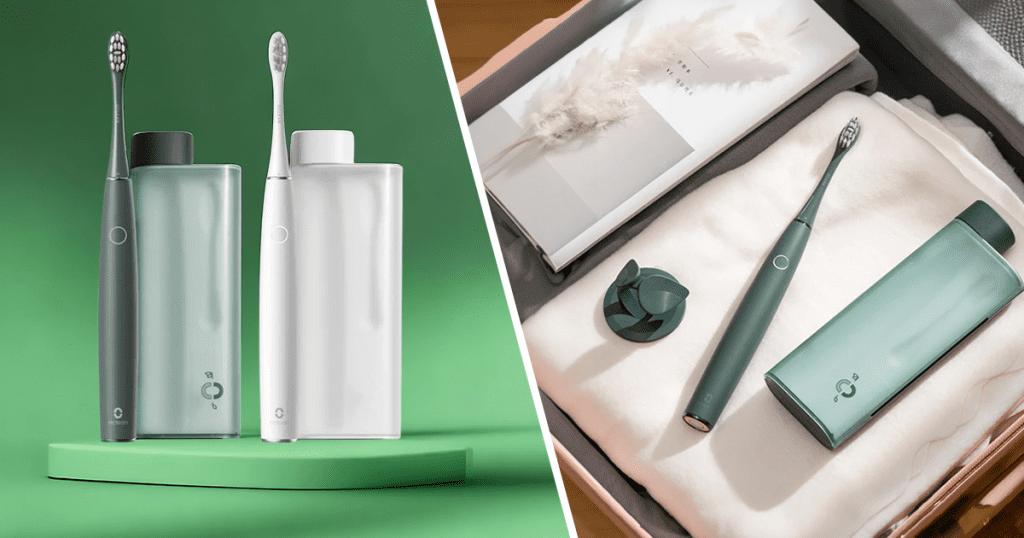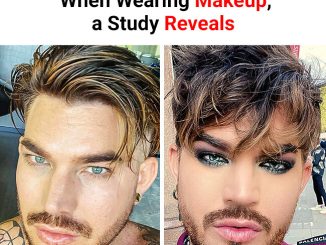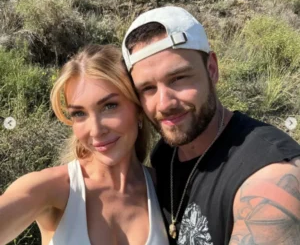Nicollette Sheridan rose to stardom as Paige Matheson on the beloved soap opera Knots Landing and later became a fan-favorite for her portrayal of the mischievous Edie Britt on Desperate Housewives. However, beyond her on-screen fame, Sheridan’s life has been marked by a series of high-profile relationships and personal challenges. Let’s take a closer look at her journey and how she’s doing today.
From Soap Opera Star to Hollywood Icon
Sheridan captivated audiences in the 1980s with her role as Paige Matheson on Knots Landing, a spinoff of the legendary series Dallas. Introduced in 1986, Sheridan’s character became a standout for her beauty, cunning, and layered personality.
“Paige is different. She’s strong, she’s ambitious, she’s bright, she’s mischievous,” Sheridan explained, reflecting on her iconic role.
Her performance earned her the 1990 Soap Opera Digest Award for Outstanding Lead Actress and a spot on People magazine’s list of “50 Most Beautiful People.”
A Hollywood Upbringing
Born in England, Sheridan moved to the United States at age 10. Growing up in Hollywood with her mother, actress Sally Adams, and her mother’s partner, Telly Savalas (best known as Blofeld in the James Bond films), Sheridan faced challenges adapting to her new environment. Her British accent initially made her stand out, and she worked hard to adopt an American accent to fit in.
“All the kids used to make fun of [my accent], and I hated it. So I practiced every day talking with an American accent and pretty much mastered it,” she shared in an interview with the Tampa Bay Times in 1988.
Tumultuous Relationships
Sheridan’s personal life has been as eventful as her career. Her first marriage was to actor Harry Hamlin in 1991, but the union lasted only 11 months. Controversy arose when Hamlin’s second wife, Lisa Rinna, alleged on The Real Housewives of Beverly Hills that Sheridan had an affair with singer Michael Bolton during their marriage—a claim Sheridan has repeatedly denied.

Following her divorce, Sheridan did date Michael Bolton, with the couple engaging in an on-again, off-again relationship that spanned nearly two decades. They reunited in 2005, became engaged in 2006, but ended their relationship in 2008.
Sheridan’s second marriage, to actor Aaron Phypers, was equally short-lived, lasting just six months. Interestingly, both Hamlin and Phypers later married stars of The Real Housewives of Beverly Hills, with Hamlin marrying Lisa Rinna and Phypers tying the knot with Denise Richards.
Challenges on Desperate Housewives
Sheridan’s time on Desperate Housewives ended abruptly when her character, Edie Britt, was unexpectedly killed off.
Sheridan alleged that her dismissal stemmed from a confrontation with the show’s creator, Marc Cherry, whom she accused of physical assault. Sheridan also claimed Cherry fostered a toxic work environment, but her lawsuit against him was ultimately dismissed in 2017.
Edie Britt’s departure left fans devastated, with many arguing the show was never the same without her.
A Shift in Focus
After her high-profile exit from Desperate Housewives, Sheridan stepped away from the limelight, focusing on smaller projects. She appeared in several Hallmark Channel films and joined the Dynasty reboot in 2017 as the iconic Alexis Carrington. However, she left the show in 2019 to prioritize her family, particularly her ailing mother.
“Working on the Dynasty reboot and reprising the iconic role of Alexis has been thoroughly enjoyable, but the chance to spend precious time with my terminally ill mother is more important to me right now,” Sheridan told TV Line.
Where Is She Now?
Today, Nicollette Sheridan continues to embrace a quieter life away from Hollywood’s hustle and bustle, focusing on what matters most to her.
What do you think about Nicollette Sheridan’s journey? Let us know in the comments, and don’t forget to share this story with fans who’d love to catch up on her incredible life and career!
Keep your thoughts clean =)))
Sometimes, the simplest things in life can spark the wildest imaginations. The viral meme that’s been circulating online—featuring a question about a “13cm long object in your mouth almost every night”—might make some minds wander, but the answer is as innocent as it gets. That’s right, folks, it’s just a toothbrush! What were you thinking?
But let’s take this moment to appreciate this everyday object that often goes unnoticed despite playing a crucial role in our daily hygiene. It’s time to give the humble toothbrush the attention it deserves.
The Toothbrush: Your Silent Hero

Think about it. This small, bristled tool has been with you through thick and thin—morning breath, post-dinner cleanups, and late-night cravings. It’s there for you first thing in the morning and the last thing at night, tirelessly working to keep your teeth healthy and your breath fresh.
Yet, how often do we acknowledge its importance? Let’s dive into why your toothbrush deserves more credit than it gets.
A History of the Toothbrush: From Twigs to Tech
Toothbrushes have come a long way. Back in ancient times, people used chewing sticks—yes, literal sticks—to scrub their teeth. The Chinese were among the first to invent a bristled toothbrush in the 15th century, using boar hair attached to bamboo or bone handles. Imagine brushing with that!
Fast forward to today, and we have ultra-modern, electric toothbrushes with AI tracking, sonic technology, and even self-sanitizing bristles. We’ve evolved from rubbing twigs on our teeth to using high-tech tools that do the job in seconds.
Why Your Toothbrush Is More Important Than You Think
Your toothbrush isn’t just about fresh breath—it’s about overall health. Poor oral hygiene can lead to cavities, gum disease, and even heart problems. Did you know that bacteria from an unclean mouth can enter the bloodstream and contribute to conditions like cardiovascular disease? That’s why brushing twice a day is non-negotiable.
Video : Your Toothbrush Is More Valuable Than You Think…
Here’s what your toothbrush does for you:
- Removes plaque and bacteria – Prevents cavities and keeps your teeth strong.
- Fights bad breath – Because no one wants to smell morning breath all day.
- Protects your gums – Reduces the risk of bleeding gums and gum disease.
- Boosts confidence – A clean mouth = a great smile = instant confidence.
The Right Way to Brush (Because You’re Probably Doing It Wrong)
Let’s be honest—most of us just go through the motions when brushing. But are you doing it right? Here’s a quick refresher on the correct technique:
- Use a soft-bristled toothbrush – Hard bristles can damage enamel and irritate gums.
- Brush for at least two minutes – Yes, two full minutes. Set a timer if you need to.
- Don’t forget your tongue – Bacteria love to hide there. A few gentle strokes can prevent bad breath.
- Use gentle, circular motions – Avoid aggressive back-and-forth scrubbing; it does more harm than good.
- Replace your toothbrush every 3-4 months – Worn-out bristles don’t clean effectively.
Signs It’s Time to Change Your Toothbrush
You wouldn’t use an old sponge to clean your dishes, right? The same logic applies to your toothbrush. If you notice any of these signs, it’s time to get a new one:
- Frayed bristles – They lose their effectiveness when bent out of shape.
- Lingering bad breath – Your toothbrush may not be doing its job properly anymore.
- You’ve been sick – Germs can stick around on your toothbrush. Toss it after an illness.
- It’s been over three months – Even if it looks fine, bacteria build up over time.

Electric vs. Manual: Does It Really Matter?
There’s an ongoing debate about whether electric toothbrushes are better than manual ones. Here’s the truth:
- Electric toothbrushes can be more effective because they provide consistent, thorough brushing with less effort. They’re great for people with limited dexterity, like kids or seniors.
- Manual toothbrushes work just as well if you use proper technique and brush for the recommended time. They’re more affordable and travel-friendly.
At the end of the day, the best toothbrush is the one you use correctly and consistently.
Common Toothbrushing Mistakes You Might Be Making
Even if you brush daily, you might be guilty of these common mistakes:
- Brushing too hard – More pressure doesn’t mean cleaner teeth; it just damages enamel.
- Skipping the back teeth – Molars matter! Don’t just focus on the front.
- Using too much toothpaste – A pea-sized amount is enough. Too much foam can make you stop brushing too soon.
- Rinsing with water immediately after brushing – This washes away the fluoride from toothpaste before it has time to work.
Video : How to Brush Your Teeth Animation MCM
The Truth About Mouthwash – Is It Necessary?
Some people think mouthwash can replace brushing. Spoiler: It can’t. While mouthwash is great for killing bacteria and freshening breath, it’s no substitute for physically scrubbing away plaque. Use it as an extra step, not a replacement.
Final Thoughts
So, the next time someone tries to trick you with a cheeky question about what’s in your mouth every night, confidently say “My toothbrush”—because you know the real answer.
A toothbrush might be small, but it plays a huge role in keeping your teeth, gums, and overall health in check. So, keep your thoughts clean, and more importantly—keep your teeth cleaner!



Leave a Reply